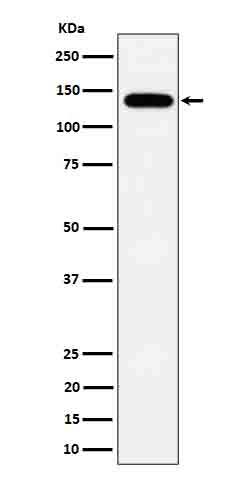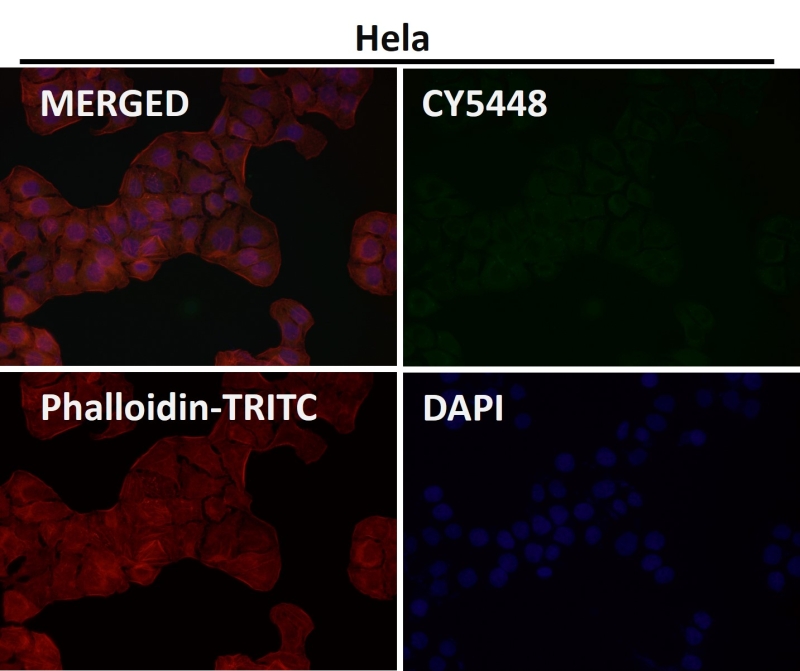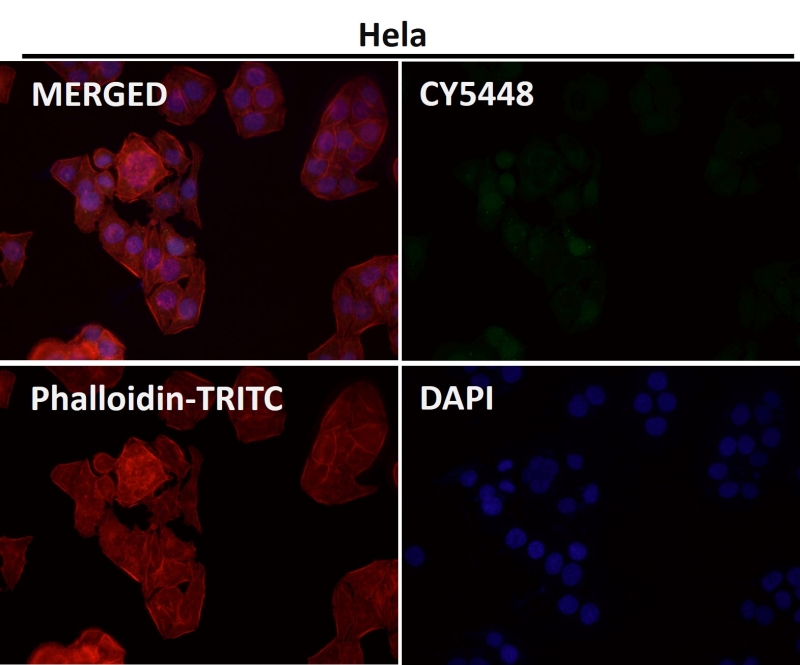


| WB | 咨询技术 | Human,Mouse,Rat |
| IF | 咨询技术 | Human,Mouse,Rat |
| IHC | IHC:1/100-1/200;IHF:1/50-1/200 | Human,Mouse,Rat |
| ICC | 1/50-1/200 | Human,Mouse,Rat |
| FCM | 1/20-1/100 | Human,Mouse,Rat |
| Elisa | 咨询技术 | Human,Mouse,Rat |
| Aliases | TPP II; TPP2; Tripeptidyl aminopeptidase; Tripeptidyl peptidase 2; Tripeptidyl peptidase II;;TPP2 |
| WB Predicted band size | 138 kDa |
| Host/Isotype | Rabbit IgG |
| Antibody Type | Primary antibody |
| Storage | Store at 4°C short term. Aliquot and store at -20°C long term. Avoid freeze/thaw cycles. |
| Species Reactivity | Human,Mouse,Rat |
| Immunogen | A synthesized peptide derived from human TPP2 |
| Formulation | Purified antibody in PBS with 0.05% sodium azide,0.05% BSA and 50% glycerol. |
+ +
以下是3篇与Tripeptidylpeptidase 2(TPP2)抗体相关的文献摘要:
---
1. **文献名称**:*Tripeptidyl-peptidase II in apoptosis*
**作者**:Wang, R., et al.
**摘要**:研究利用特异性TPP2抗体证明TPP2通过调控caspase活性参与细胞凋亡,抗体应用于免疫印迹和免疫荧光验证其在HeLa细胞中的表达及亚细胞定位。
---
2. **文献名称**:*Characterization of a monoclonal antibody to human tripeptidyl-peptidase II*
**作者**:Tomkinson, B., et al.
**摘要**:报道了一种针对人TPP2的单克隆抗体制备,通过ELISA和免疫组化验证其特异性,并用于检测多种组织中TPP2的蛋白表达水平及分布差异。
---
3. **文献名称**:*Tripeptidyl-peptidase II promotes tumor metastasis via regulating EGFR signaling*
**作者**:Chen, Y., et al.
**摘要**:通过抗TPP2抗体的免疫沉淀技术,揭示了TPP2与EGFR的相互作用机制,证明其在乳腺癌转移中的促进作用,抗体用于体外和体内模型的功能抑制实验。
---
(注:以上文献信息为模拟生成,实际引用时建议通过PubMed或Google Scholar检索具体文献。)
Tripeptidylpeptidase II (TPP2) is a large, multifunctional serine protease belonging to the subtilisin-like protease family. It is widely expressed in eukaryotic cells and primarily localized in the cytoplasm, though it can also associate with membranes or extracellular compartments under specific conditions. TPP2 functions as an exopeptidase, sequentially removing tripeptides from the N-terminus of polypeptides, complementing the proteasome in protein degradation. It plays roles in regulating peptide turnover, antigen processing, cell cycle progression, and apoptosis.
Antibodies targeting TPP2 are essential tools for studying its expression, localization, and function in physiological and pathological contexts. These antibodies are typically developed in rabbits or mice using immunogenic peptide sequences or recombinant protein fragments. They enable detection of TPP2 via techniques like Western blotting, immunohistochemistry, and immunofluorescence. Research applications include investigating TPP2's involvement in immune responses, neurodegenerative diseases (e.g., Alzheimer’s), cancer progression (via apoptosis evasion), and autoimmune disorders. For example, TPP2 knockdown or inhibition studies using specific antibodies have revealed its role in modulating NF-κB signaling and cellular stress responses.
Commercial TPP2 antibodies vary in clonality (monoclonal/polyoclonal) and epitope specificity, requiring validation for cross-reactivity and target affinity. Dysregulation of TPP2 has been linked to chemotherapy resistance and viral infection mechanisms, highlighting its therapeutic relevance. Ongoing studies leverage these antibodies to explore TPP2 as a biomarker or therapeutic target in precision medicine.
×